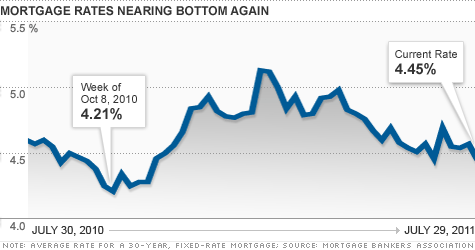Exploring the Temporary Job Market in Singapore: Opportunities and Trends

In the bustling economic hub of Singapore, the job market is as dynamic as the city-state itself. While many might be familiar with the permanent employment landscape, the temporary job market in Singapore has been gaining significant traction. This segment offers a myriad of opportunities for both job seekers and employers, providing flexibility, diverse experiences, and a pathway to permanent roles. In this blog, we will delve into the current trends, opportunities, and the overall outlook of the temporary job market in Singapore.
Understanding the Temporary Job Market
Temporary jobs, often referred to as temp jobs, contract positions, or freelance work, are roles with a fixed duration. These can range from a few days to several months, and sometimes extend up to a year. The flexibility and variety of these positions attract a diverse pool of candidates, including students, fresh graduates, retirees, and professionals seeking short-term engagements.

Why the Rise in Temporary Jobs?
1. Economic Uncertainty
Global economic fluctuations and the recent impact of the COVID-19 pandemic have led many companies to adopt a more cautious approach to hiring. By employing temporary staff, businesses can manage their workforce needs without committing to long-term contracts. This approach helps them stay agile and responsive to market changes.
2. Talent Diversification
Employers are increasingly recognizing the benefits of tapping into a wider talent pool. Temporary jobs in Singapore offer companies the chance to bring in fresh perspectives and specialized skills for specific projects. This model supports innovation and enhances productivity without the long-term financial commitment of permanent hires.
3. Workforce Flexibility
For job seekers, temporary roles provide a flexible working arrangement that can accommodate personal commitments, further studies, or other career aspirations. This flexibility is particularly appealing in a fast-paced environment like Singapore, where work-life balance is highly valued.
Key Sectors Offering Temporary Jobs in Singapore
1. Information Technology (IT)
The tech industry is a major player in the temporary job market. With the rapid pace of technological advancements, companies frequently seek temporary IT professionals for short-term projects such as software development, system upgrades, and cybersecurity initiatives. The demand for skilled IT contractors continues to grow, reflecting the sector’s dynamic nature.
2. Healthcare
The healthcare sector has seen a surge in temporary job opportunities, especially in light of the COVID-19 pandemic. Temporary roles for nurses, lab technicians, and administrative staff are in high demand to support fluctuating patient volumes and special projects. These positions are crucial in ensuring the smooth operation of healthcare facilities during peak times.
3. Retail and Hospitality
With Singapore being a global tourism hub, the retail and hospitality sectors regularly require temporary staff to manage seasonal peaks and events. Positions in customer service, sales, and event management are common, offering job seekers the chance to gain experience in high-energy environments.
4. Education and Training
Temporary teaching and training roles are also prevalent. As educational institutions and corporate training providers adapt to new learning modalities, there is a growing need for temporary educators, trainers, and administrative support staff to manage short-term programs and workshops.
Finding Temporary Job Opportunities
1. Online Job Portals
Websites like JobStreet, Indeed, and LinkedIn are valuable resources for finding temporary job vacancies in Singapore. These platforms allow users to filter job searches based on contract type, industry, and location, making it easier to find suitable temporary roles.
2. Recruitment Agencies
Specialized recruitment agencies like Adecco, Manpower, and Kelly Services focus on placing candidates in temporary positions. These agencies have extensive networks and can match job seekers with employers looking for short-term talent. They also provide support throughout the hiring process, from application to contract negotiation.
3. Company Websites
Many organizations advertise temporary job openings directly on their websites. Regularly checking the careers section of companies of interest can lead to the discovery of suitable temporary roles. This direct approach can sometimes result in quicker application processing and hiring.
Benefits of Temporary Jobs
1. Skill Development
Temporary roles offer the opportunity to develop new skills and gain experience in different industries. This exposure can enhance a job seeker’s resume and make them more attractive to future employers.
2. Networking
Working in various temporary positions allows individuals to build a broad professional network. These connections can be invaluable for career growth, providing references, and opening doors to new opportunities.
3. Pathway to Permanent Employment
Temporary jobs often serve as a stepping stone to permanent positions. Employers may offer permanent roles to temporary staff who have demonstrated exceptional performance and fit well with the company culture.
4. Work-Life Balance
Temporary jobs typically offer more flexible working hours compared to permanent roles. This flexibility can help individuals manage personal commitments and achieve a better work-life balance.
Challenges of the Temporary Job Market
1. Job Security
One of the main drawbacks of temporary jobs is the lack of job security. Contracts are for a fixed duration, and there is no guarantee of continued employment once the term ends. This uncertainty can be stressful for some individuals.
2. Benefits and Perks
Temporary employees often do not receive the same benefits and perks as permanent staff. Health insurance, retirement plans, and paid leave are usually less comprehensive or absent altogether in temporary contracts.
3. Career Progression
While temporary jobs can provide valuable experience, they may not always offer the same opportunities for career progression as permanent roles. Employees might find it challenging to climb the corporate ladder if they are continually switching between temporary positions.
Future Trends in the Temporary Job Market
1. Gig Economy Growth
The gig economy is expected to continue growing, driven by advancements in technology and changing attitudes towards work. More professionals are likely to embrace freelance and temporary roles as viable career options.
2. Remote Work
The shift towards remote work, accelerated by the pandemic, is likely to persist. This trend opens up temporary job opportunities beyond geographical boundaries, allowing Singaporean companies to tap into a global talent pool and vice versa.
3. Digital Transformation
As businesses undergo digital transformation, the demand for temporary tech professionals will increase. Roles related to data analysis, digital marketing, and software development will be particularly sought after.
Conclusion
The temporary job market in Singapore presents a landscape of opportunity for both job seekers and employers. With economic uncertainty and a desire for flexibility driving its growth, this segment offers diverse roles across various sectors. By understanding the current trends and leveraging available resources, individuals can effectively navigate this dynamic job market. Whether seeking to gain new skills, build a professional network, or find a pathway to permanent employment, temporary jobs in Singapore provide a valuable and flexible employment option. As the market evolves, staying informed and adaptable will be key to making the most of these opportunities.



